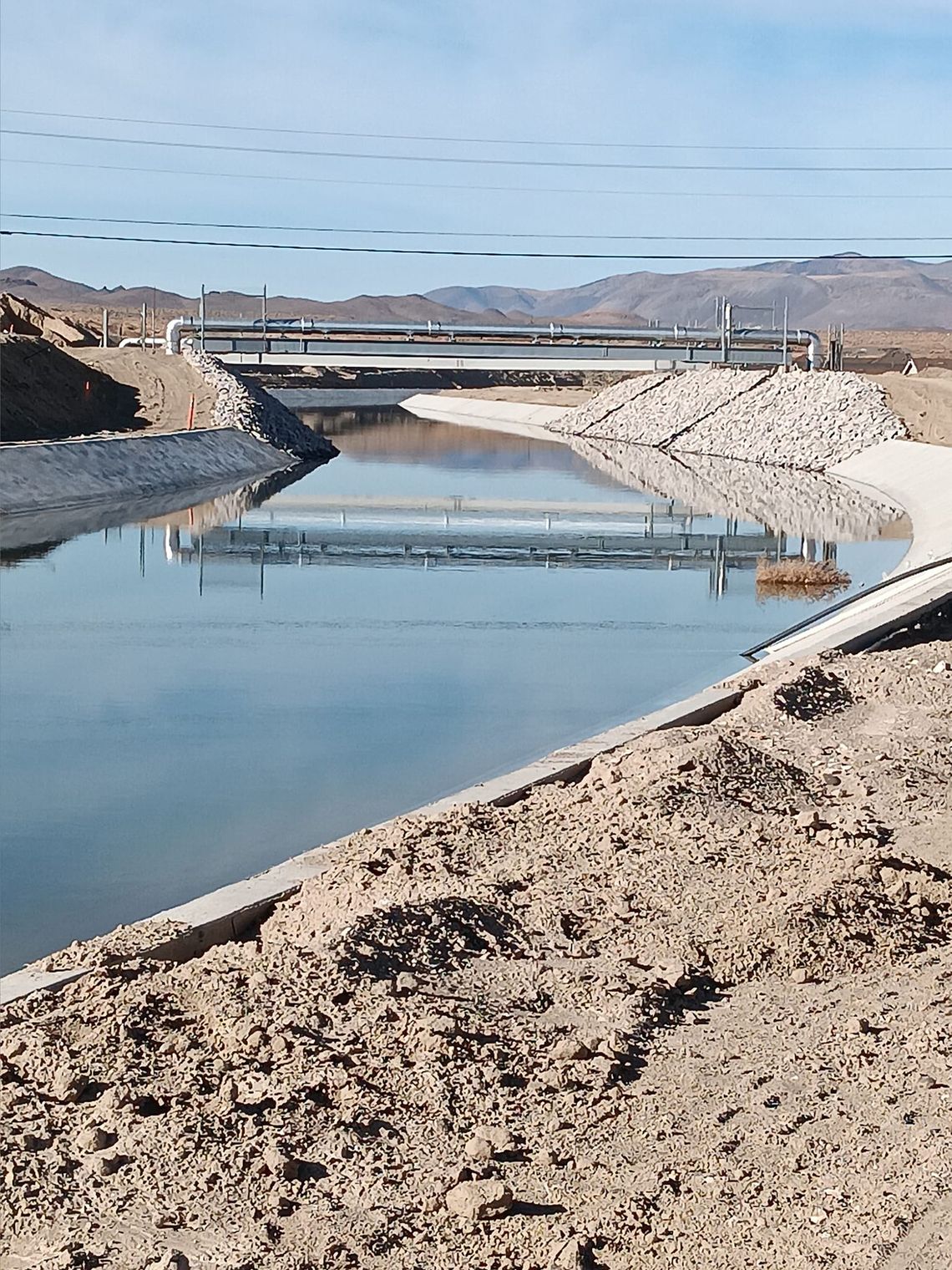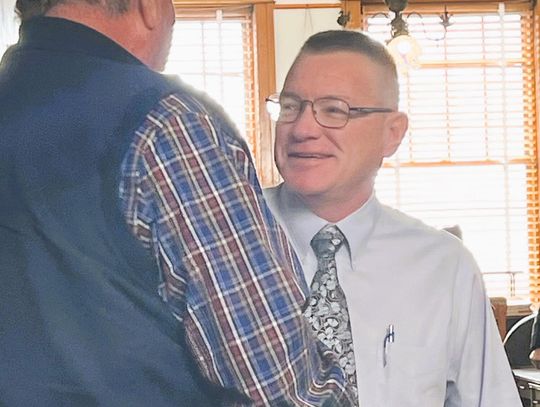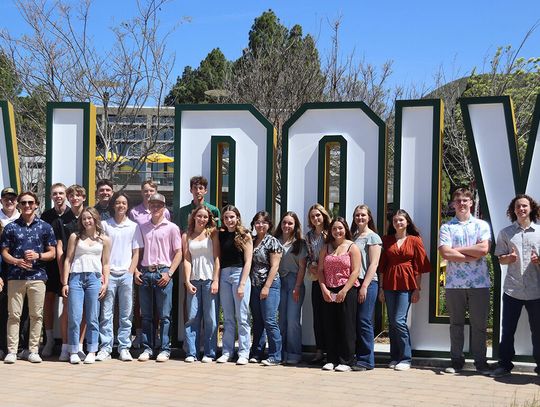Senior Judge Robert Estes in the Tenth Judicial District Court in Fallon, NV, heard arguments last Friday from Truckee Carson Irrigation District attorney and General Manager Ben Shawcroft, City of Fernley attorney David Rigdon, Esq., and several Fernley residents regarding TCID’s authority to enter a $35 million repayment contract with the Bureau of Reclamation (BOR) for repairs to the Truckee Canal in Fernley.
The highly controversial Truckee Canal project, undertaken by the BOR, includes 31 miles of major repairs, including installing 12.7 miles of concrete lining. The largely earthen canal, which delivers water to more than 50,000 acres of farmland, wildlife, and several area residents, breached in January 2008, causing flooding to 600 homes and millions of dollars in property damage.
Through the BOR, the federal government provided construction funds upfront for phase one of the project, 3.1 miles of concrete lining completed last October. The BOR entered into a repayment contract with TCID to be paid back over the next 50 years, and according to Rigdon, this will result in an annual principal and interest payment of approximately $1 million. In 2020, the total cost of the entire project was estimated to be around $140-160 million for the irrigation district.
According to Rigdon, studies indicate that the canal contributes between 12,000 and 18,000 acre-feet (af) of recharge to the aquifer through its bottom. The city owns approximately 9,000 acre-feet of groundwater rights, with total committed underground water rights in the basin amounting to about 12,000 acre-feet.
Fernley residents objected to the project as presented, favoring other alternative repair options. They expressed concerns about the concrete lining potentially limiting groundwater seepage, causing water table drops, and failing to recharge the aquifer.
Once the TCID Board of Directors approved the contract, TCID held a special election in 2022 to affirm the contract, with the repayment contract approved by voters. The funds to repay the contract will come from resident taxes and increased Operations & Maintenance (O&M) fees and assessments for surface water right holders within TCID.
Rigdon introduced several arguments during the Aug. 2 District Court hearing, hoping to nullify the legal authority of TCID to enter into the contract. According to Rigdon, the ballot vote in 2022 was unconstitutional based on the premise that many residents affected by the project – non-TCID water users who possess no surface water rights – will be taxed. “Taxation without representation,” said Rigdon.
The foremost concern for Fernley residents is the rapidly dropping water table. Over the last year, several property owners reported to TCID that many wells have gone dry, leaving several homes, farms, and ranches without water. Much of this was attributed to the one-year shut-off of the canal that halted the usual groundwater recharge from the canal. Many homeowners had to drill new wells or deepen existing ones, which reportedly cost thousands, with some upwards of $25,000.
However, releasing water to the canal during the irrigation season has done little to quell concerns regarding the concrete lining. Rigdon previously noted a 2002 seepage analysis that showed the canal doesn’t recharge equally over its entire length.
“Where they’re lining the canal just happens to coincide with some of the highest recharge areas of the canal,” Rigdon said. “This project actually hurts the city, and it didn’t have to be that way.”
Many Fernley residents addressed the court on Friday, asserting these and other concerns. TCID water users and non-water-righted residents objected to the repayment, citing their belief that the project provides no direct benefit. Further, as most residents do not hold surface water rights, they were not eligible to vote in the TCID election.
For those who did get to vote, according to Rigdon, thousands of residents were disenfranchised from the election process. “You know who didn’t get to vote in this election?” asked Rigdon. “The City of Fernley. The City of Fernley owns the vast majority of surface water rights in the Carson District. Even though we own those water rights – even though we have to pay O&M fees – the city doesn’t get to vote.” He explained that residents overwhelmingly voted in favor of the contract in the Carson District, where most voters reside, including those in Churchill County. In contrast, water users within the Truckee Division, the most impacted by the project, voted 49 in favor and 129 opposed.
TCID General Manager Ben Shawcroft reminded Rigdon and Fernley residents that they receive a benefit for Fernley, not flooding. He also addressed some residents' assertion that entering the contract constitutes fraud, telling Judge Estes this issue was already litigated and dismissed.
“These folks within the City of Fernley are asking the court to not confirm a contract that was approved by 1,886 votes to 168 votes, to now find there were errors and that was not the will of the voters. TCID would be in a terrible position to simply ignore the will of the voters – these are the voters that are going to pay for the project,” said Shawcroft. “They went into it with eyes wide open and understanding what the cost was going to be.”
Regarding the property tax assessment to residents within the district, those amounts are set according to the index established by the Nevada legislature, explained Shawcroft. “The will of the voters is very clear in this matter... Nothing calls into question the validity of the authority of entering into that contract.”
While understanding and sympathizing with the City of Fernley and its residents, Judge Estes said, “Court has very little discretion as to what it can do. The BOR owns and runs the canal, and TCID is BOR’s handyman for running it. Statute tells TCID what they may do.” Additionally, he explained that the statute also governs how the election and votes are handled, which TCID managed as required.
Before rendering his decision, he told the court, “This makes me proud to be an American because of the people in this room…This is what should be done as American citizens, no rancor, no finger-pointing.”
Judge Estes found that TCID followed the statutory requirements for entering the contract. Estes also stated, “This does not preclude arguments that may go to the Supreme Court or the Court of Appeals.”
“For the limited purpose of this hearing, the authority is approved,” said Estes upon adjournment.










Comment
Comments